Have you ever felt that you were treated unfairly, perhaps in a workplace or public setting? It's a frustrating experience, and expressing your concerns is not only important but can also lead to positive changes. In this article, we'll provide a template for crafting a compelling complaint letter that outlines your grievances clearly and effectively. So, if you're ready to take a stand and make your voice heard, keep reading to learn how to articulate your concerns strategically.
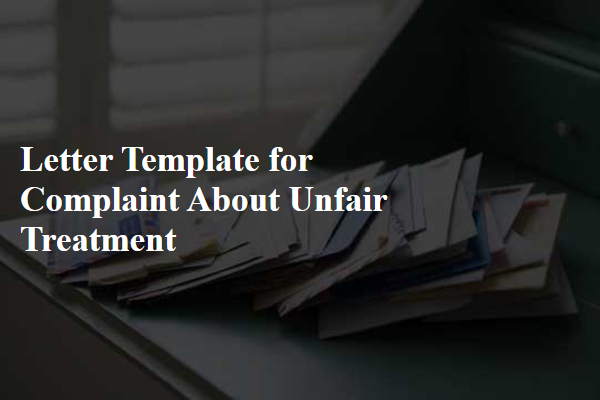
Clear Subject Line
Unfair Treatment in Workplace Environment The recent experiences of unfair treatment in the workplace have raised significant concerns regarding employee morale and well-being. Instances of favoritism affecting project assignments (notably on team initiatives such as the XYZ Project) have been observed, leading to feelings of discontent among team members. Specific individuals (like Jane Doe and John Smith) consistently receive more rewarding tasks, creating an unbalanced dynamic, with detrimental effects on productivity levels. Additionally, the lack of recognition for contributions from various team members contributes to a culture of dissatisfaction and disengagement at our company (XYZ Corporation), based in New York City. Addressing these issues promptly is crucial to fostering a fair and inclusive work environment.
Detailed Description of Incident
A recent incident occurred at the XYZ Corporation office located in Downtown Chicago on October 15, 2023. During a scheduled performance review meeting, I faced unexpected hostility from my supervisor, Jane Doe, which created an uncomfortable atmosphere. Despite my previous strong performance ratings, she openly criticized my work without constructive feedback. Several coworkers, including John Smith and Mary Johnson, were present and observed the interaction. Following this meeting, I found my access to the internal project management system restricted without prior notice, which significantly hindered my ability to complete assigned tasks on time. This unfair treatment not only affected my professional reputation but also impacted my mental well-being. I have documented the incident, including timestamps and witness accounts, and I am prepared to escalate this issue if it remains unresolved.
Impact on Personal/Professional Wellbeing
Unfair treatment in the workplace can significantly impact both personal and professional well-being. Experiencing discrimination or favoritism, especially within large organizations such as Fortune 500 companies, leads to decreased job satisfaction and heightened stress levels. Psychological effects manifest as anxiety and depression, which can hinder productivity and creativity in roles spanning diverse industries like technology and healthcare. Moreover, team dynamics suffer when members feel undervalued, resulting in reduced collaboration and motivation. Long-term exposure to unfair practices can ultimately affect career progression, as employees may feel compelled to seek opportunities elsewhere, thus contributing to high turnover rates within the organization.
Objective Evidence/Documentation
Unfair treatment can significantly impact workplace morale and productivity, particularly when there are objective evidence and documentation to support the claims. Instances of discrimination, such as a manager consistently favoring certain employees over others, can be observed in performance reviews or promotional opportunities denied to qualified individuals. For example, internal records from the year 2023 may highlight disparities in project assignments and raises. Additionally, emails and communications from employees detailing their experiences can serve as corroborative material. Presentation of concrete proof, including statistical data showing unequal treatment patterns, can lend credibility to the complaint. This approach encourages a thorough investigation into the abusive practices and urges management to address and rectify the issues immediately.
Desired Resolution/Remedy
Unfair treatment in the workplace can lead to serious consequences for employees. Reports indicate that nearly 60% of workers have experienced some form of unjust treatment. Affected individuals often seek remedies such as formal apologies or policy changes to prevent future occurrences. Specific cases may involve incidents occurring in corporate environments like Fortune 500 companies or educational institutions, where structured grievance procedures are in place. Desired resolutions may include reinstatement of job positions, financial compensation for lost income, or changes to the company culture that emphasize respect and equality. In many instances, organizations may respond by revising their diversity and inclusion training programs, aiming to foster a fairer work atmosphere.

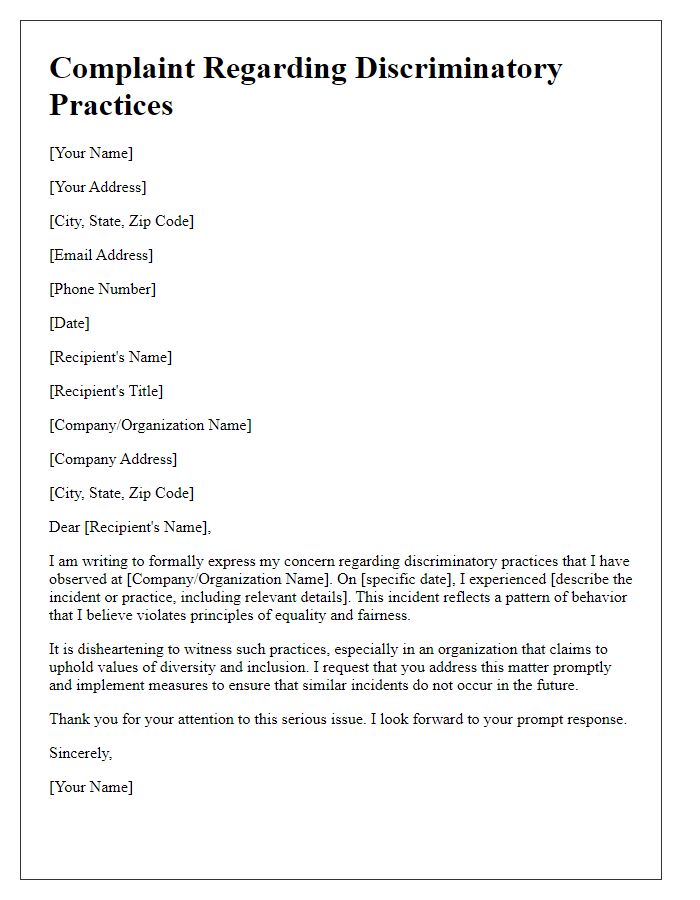
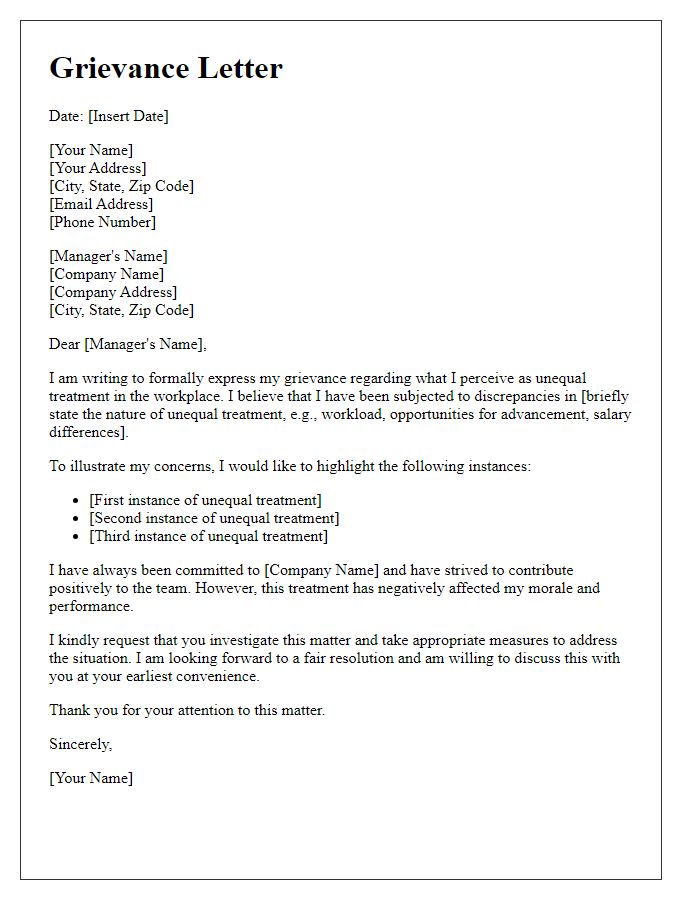
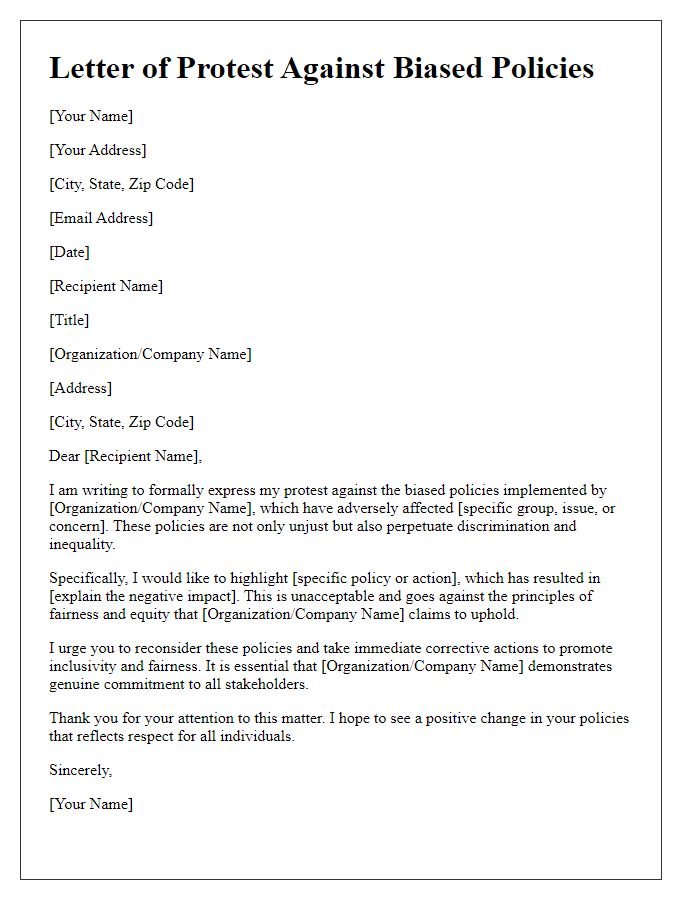
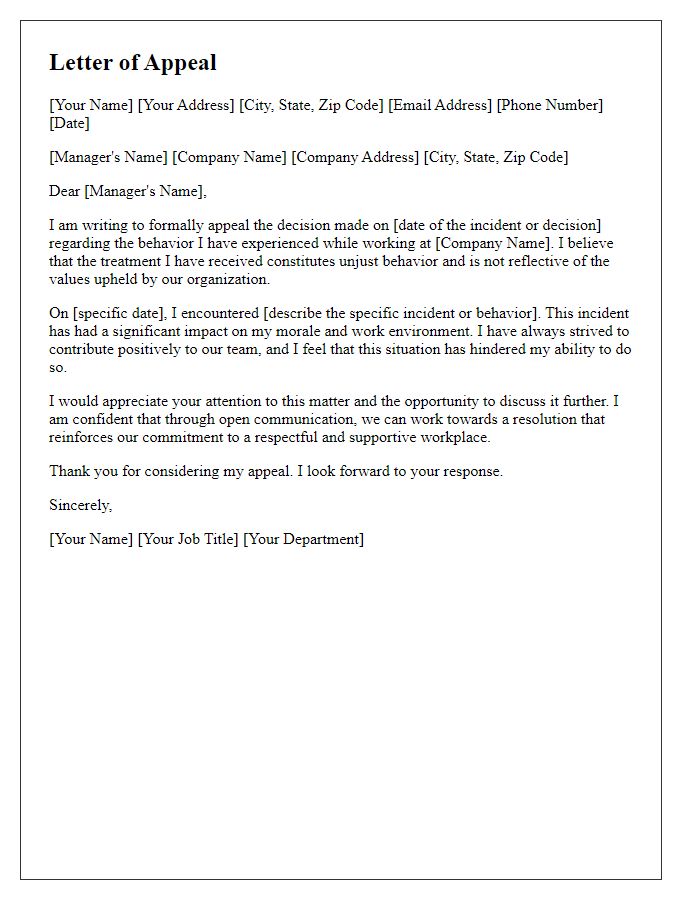
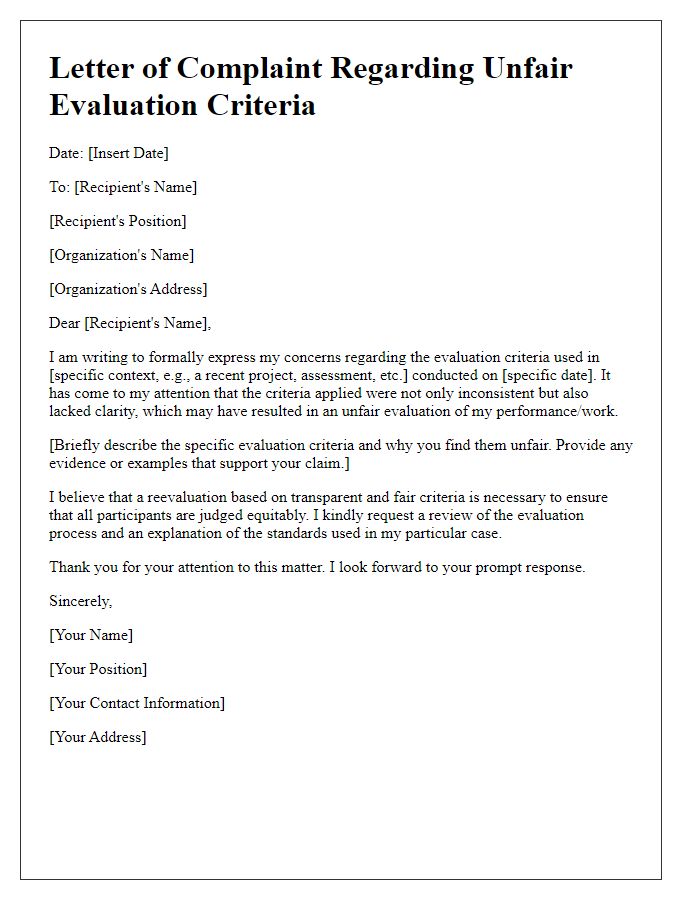
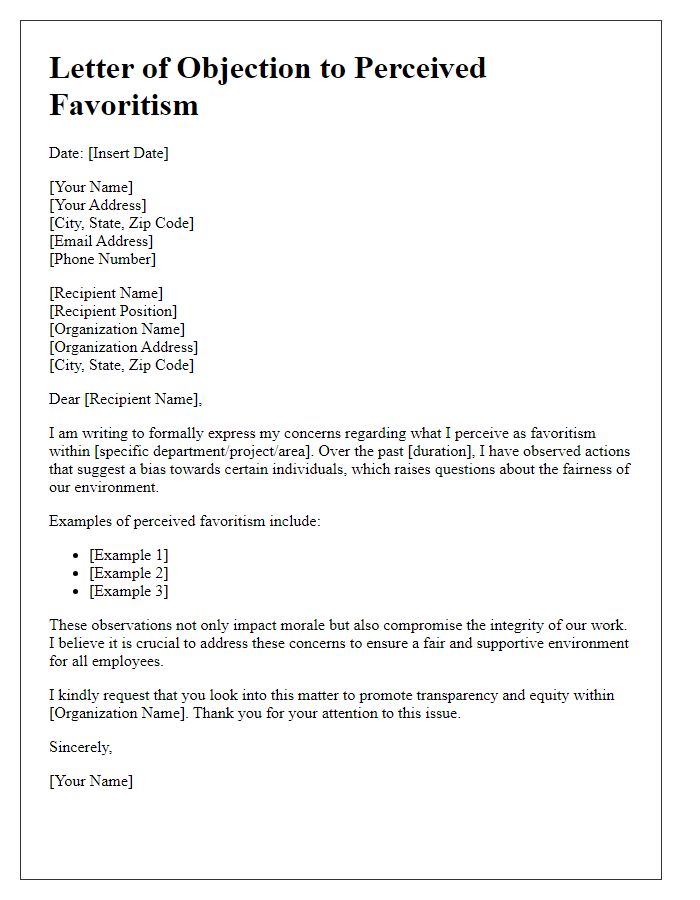
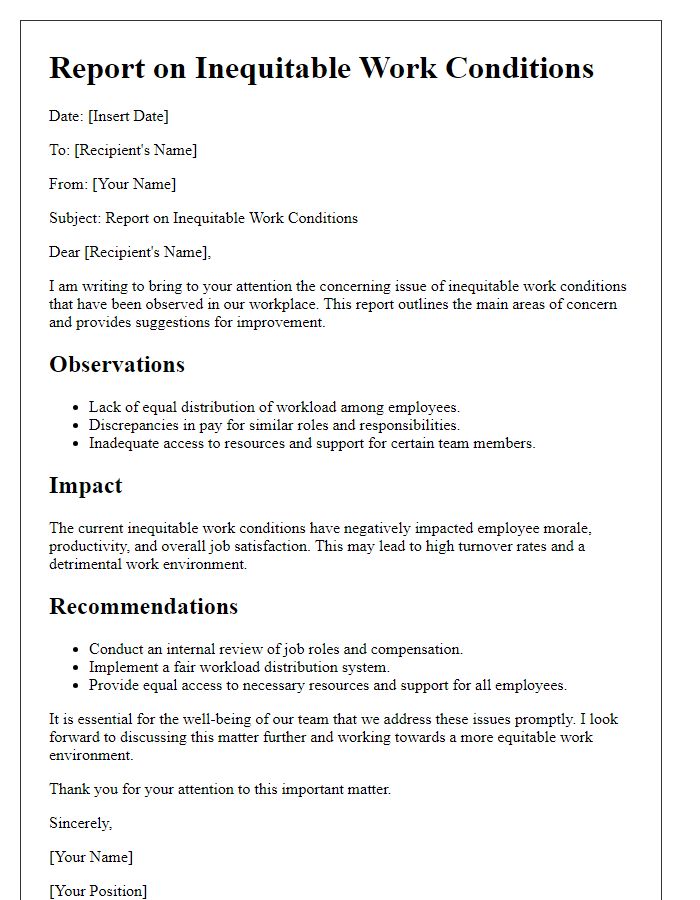
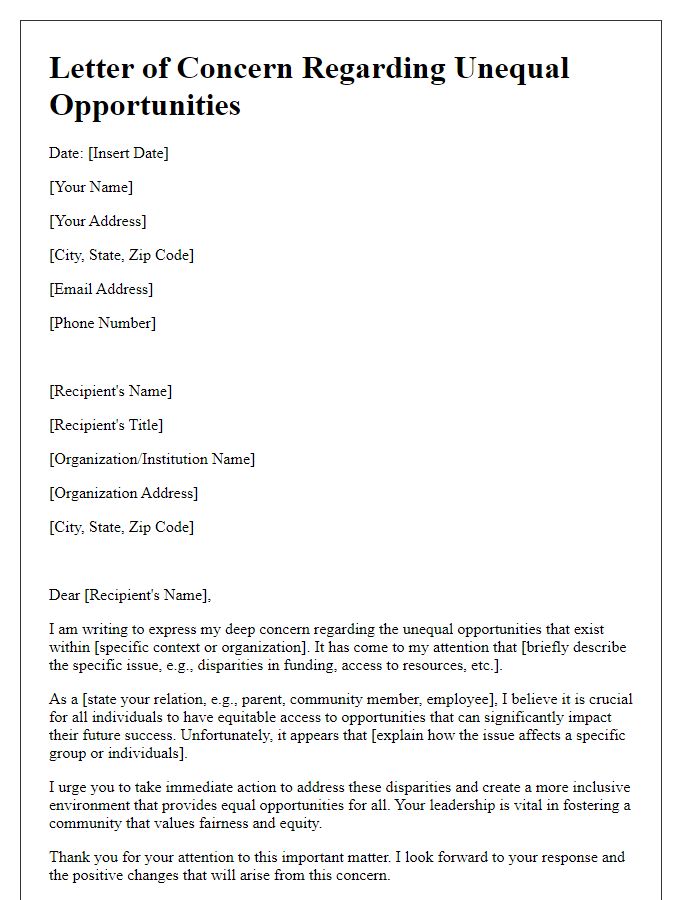
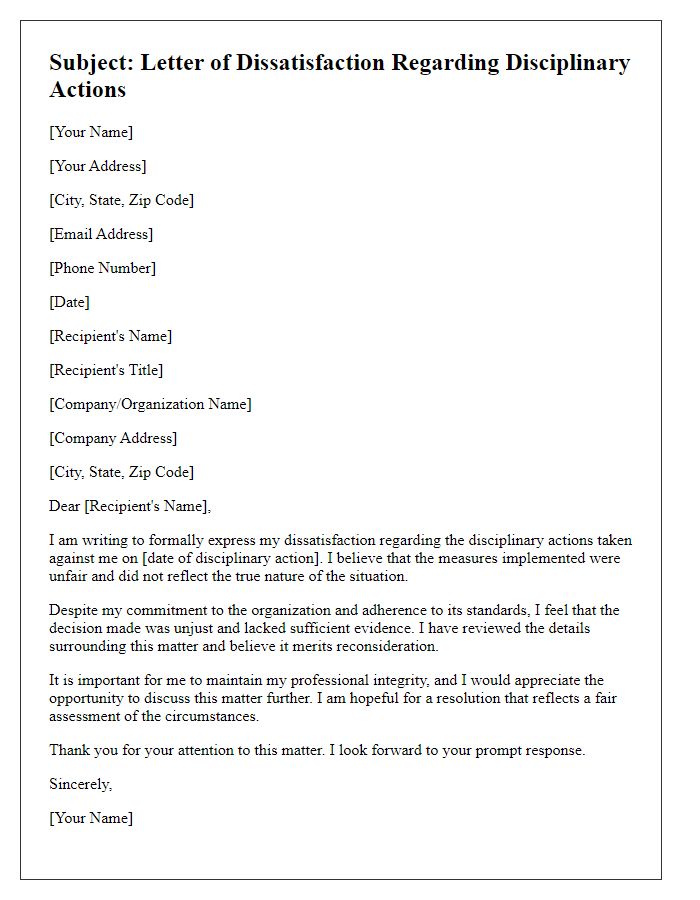
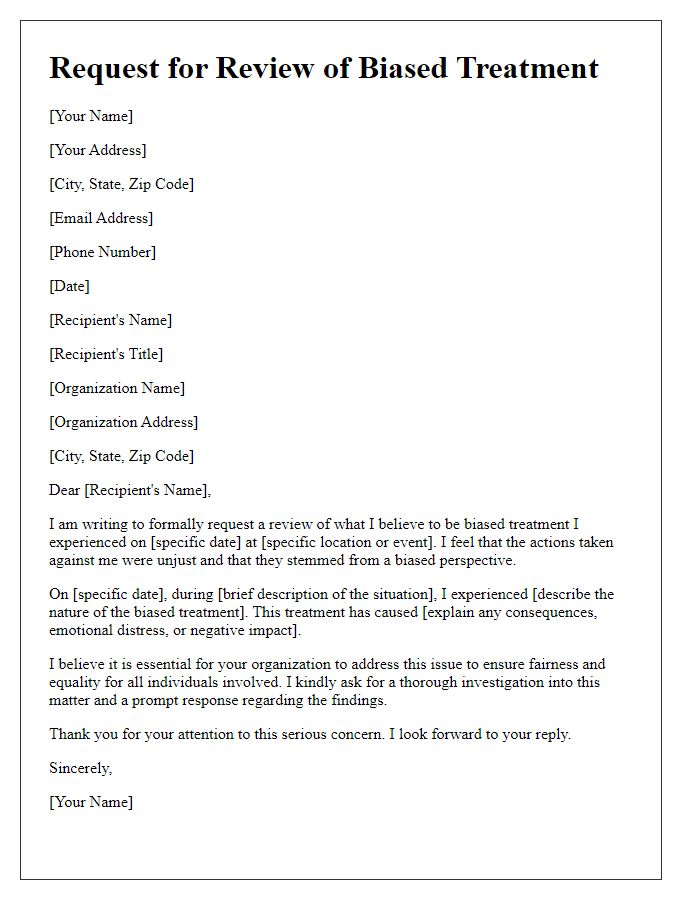


Comments